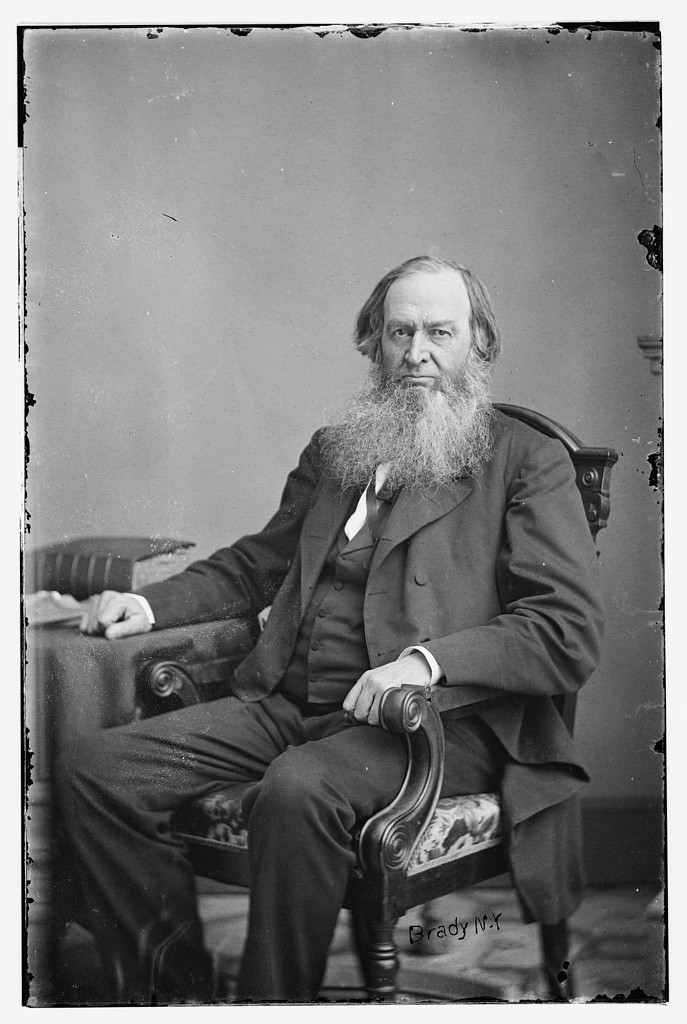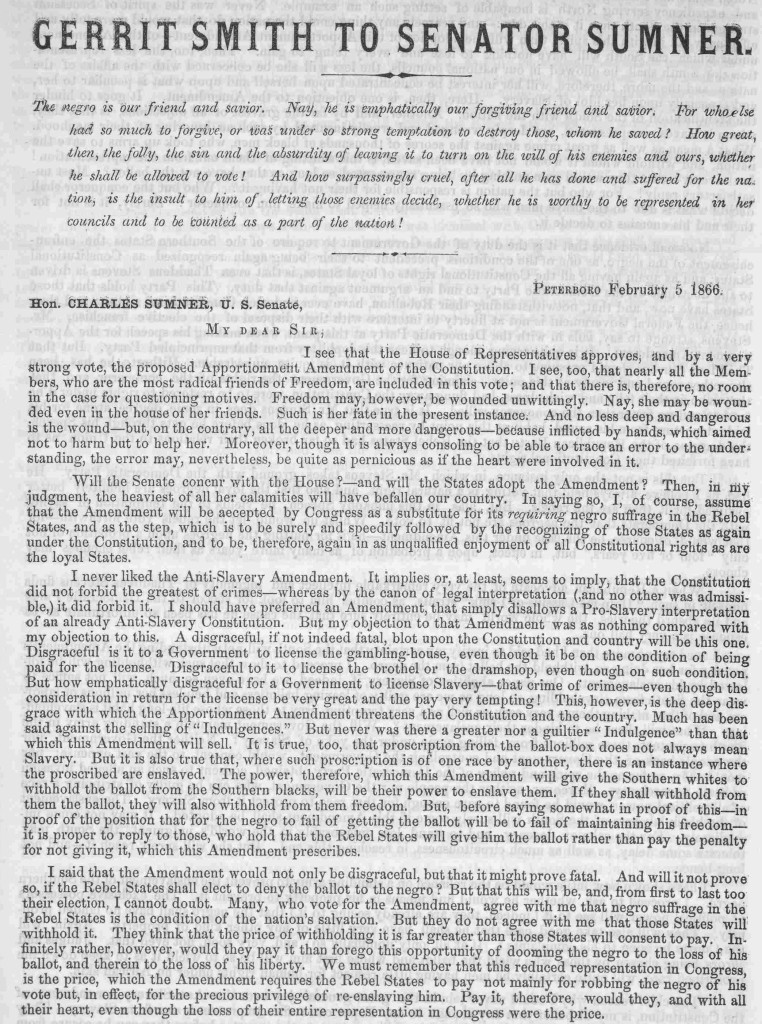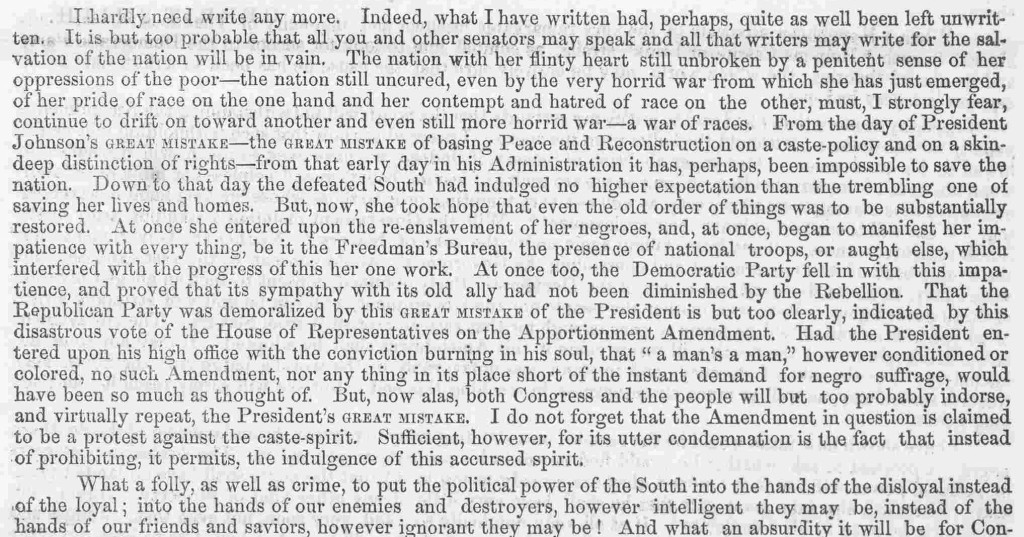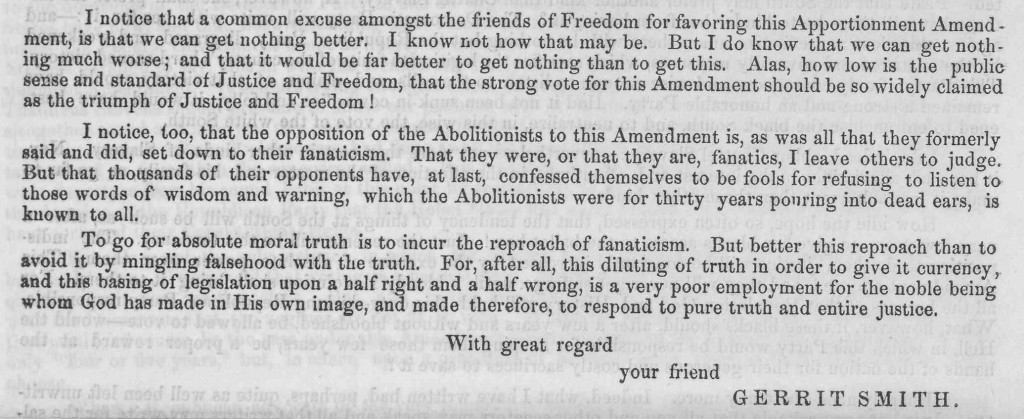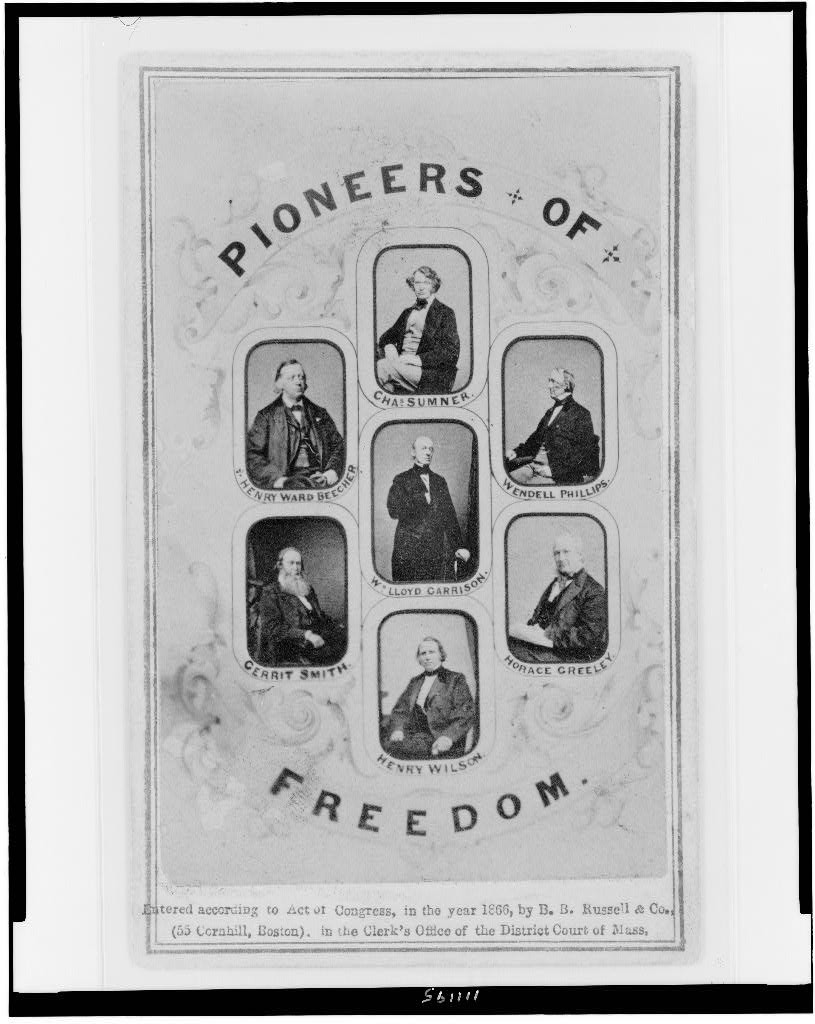In early 1866 Congress debated a proposed Constitutional amendment that that would change the apportionment of representatives to Congress. According to the February 1, 1866 issue of The New-York Times the text read:
ARTICLE – . Representatives and direct taxes shall be apportioned among the several States which may be included within this Union according to their respective numbers, counting the whole number of persons within each State, excluding Indians not taxed: Provided, that when the elective franchise shall be denied or abridged in any State on account of race or color, all persons of such race or color shall be excluded from the basis of representation.
The proposal would explicitly void the Constitution’s language that counted slaves as three-fifths of a person for determining apportionment and tried to influence Southern states to allow freedmen to vote. 150 years ago today abolitionist Gerrit Smith wrote Senator Charles Sumner that he was opposed to the “Apportionment Amendment” because it did not explicitly enfranchise all black men. It was a long letter. Here are a few cuttings:
It looks like this proposed amendment became the basis for Section 2
of the Fourteenth Amendment, which explicitly applied only to males.
The Gerrit Smith Estate is a national Historic Landmark in Peterboro, New York, where you can also visit the The National Abolition Hall of Fame and Museum

